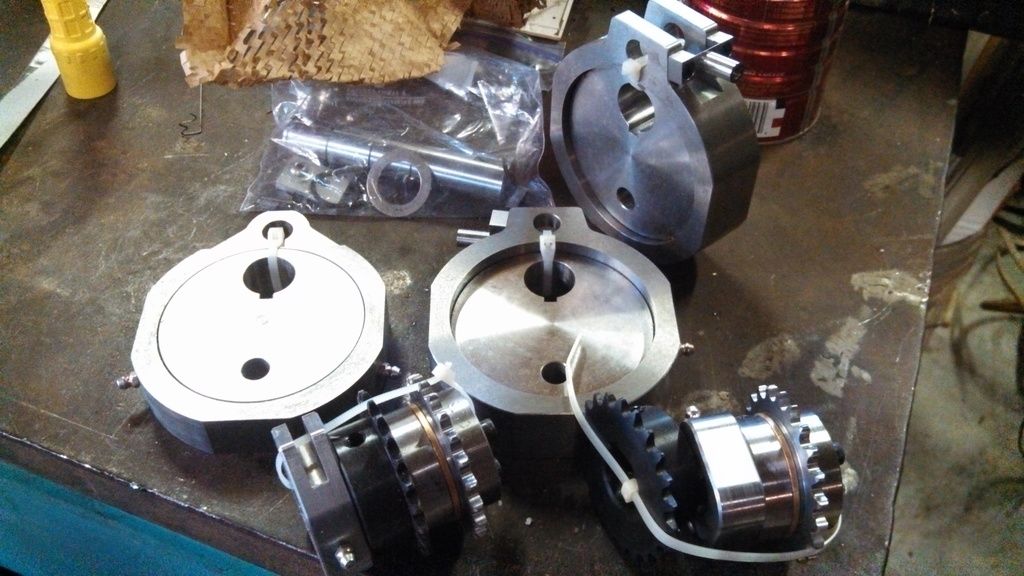There is a reason I stress an IRON 'O' Ring press, less deflection of the press frame.
And in my 'Opinion' the ram should be LARGER on these presses.
Larger/Harder ram, less deflection.
(Not really an opinion, simply a fact of presses)
I have 'O', 'U' and 'C' presses. I must have 11 presses that use the same ram. No, that does not mean I have 11 presses with one ram. All 11 presses are cam over presses; in the old days the instructions identified the cam over press as a 'bump press' and now reloaders have mastered the art of the .002" bump?
Question: Am I going to be required to call all of my 'O' presses 'O' ring presses. I have C presses, long before the Internet there were curious reloaders, a few of them decided the open side of the 'C' press allowed for deflection so they added a strap on the open side of the press. Not long after that Herter made a 'C' press with an option to close the open side.
They also developed the 'triple web' C3 and the Super 3 with the open side, the open side kept the 'C' press from being an 'O' press. And then there is that part about the ram.
There is a reason I stress an IRON 'O' Ring press, less deflection of the press frame.
Reloaders are so preoccupied with neck tension, not so much in the old days. In the old days they tested presses with tension gages, deflection gages and strain gages. That is how they determined the open C press was not as strong as the O press, my 2 favorite presses for less deflection are the U and 2 ram Herter.
I know, RCBS made an O press called the A-2. I did a shop call, seems the smith insisted it was the toughest press in the world, he raised the top of the press .017" while attempting to size cases; BUMP? He was trying to wreck them. I suggested he should have know there was something wrong when lowering the ram he had to brace himself with one foot against the bench. I know; there are so many of you that are confused and that is OK.
They actually tested presses in the old days, in one of my books that gave test results listed a press that was a total failure; and then one day I was at a flea market near NAPA, California; there it was, a dealer was selling commercial kitchen equipment; he had mounted a press on one of his tables, a press he thought was a lemon squeezer/juicer. I never convinced him it was a reloading press, I did convince him he had it mounted upside down for a juicer. The press looked like a spider doing push ups when putting it through its paces. Anyhow I purchased it for $5.00 because he could not figure out how the press could catch lemon juice while it was upside down and then he was missing the part that screwed into the press for squeezing and the bowl was missing.
F. Guffey
Last edited:


